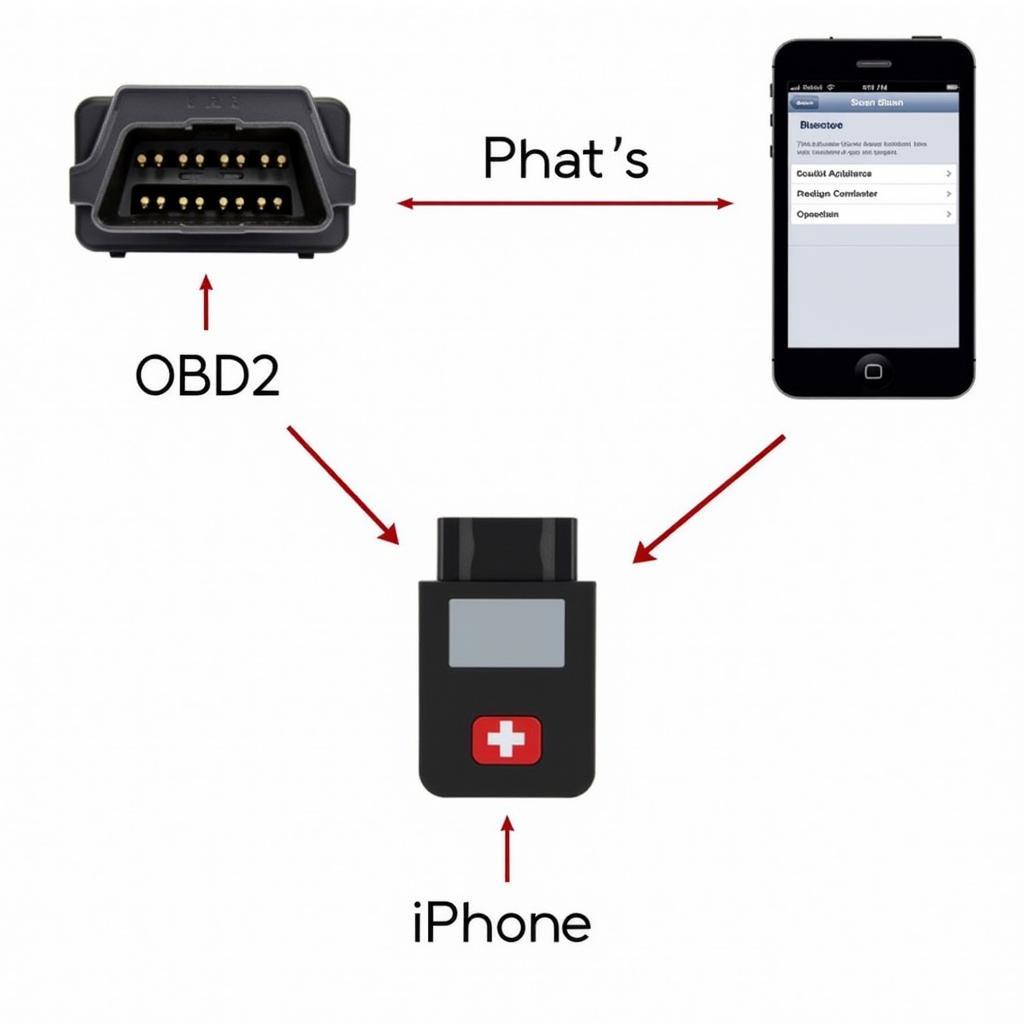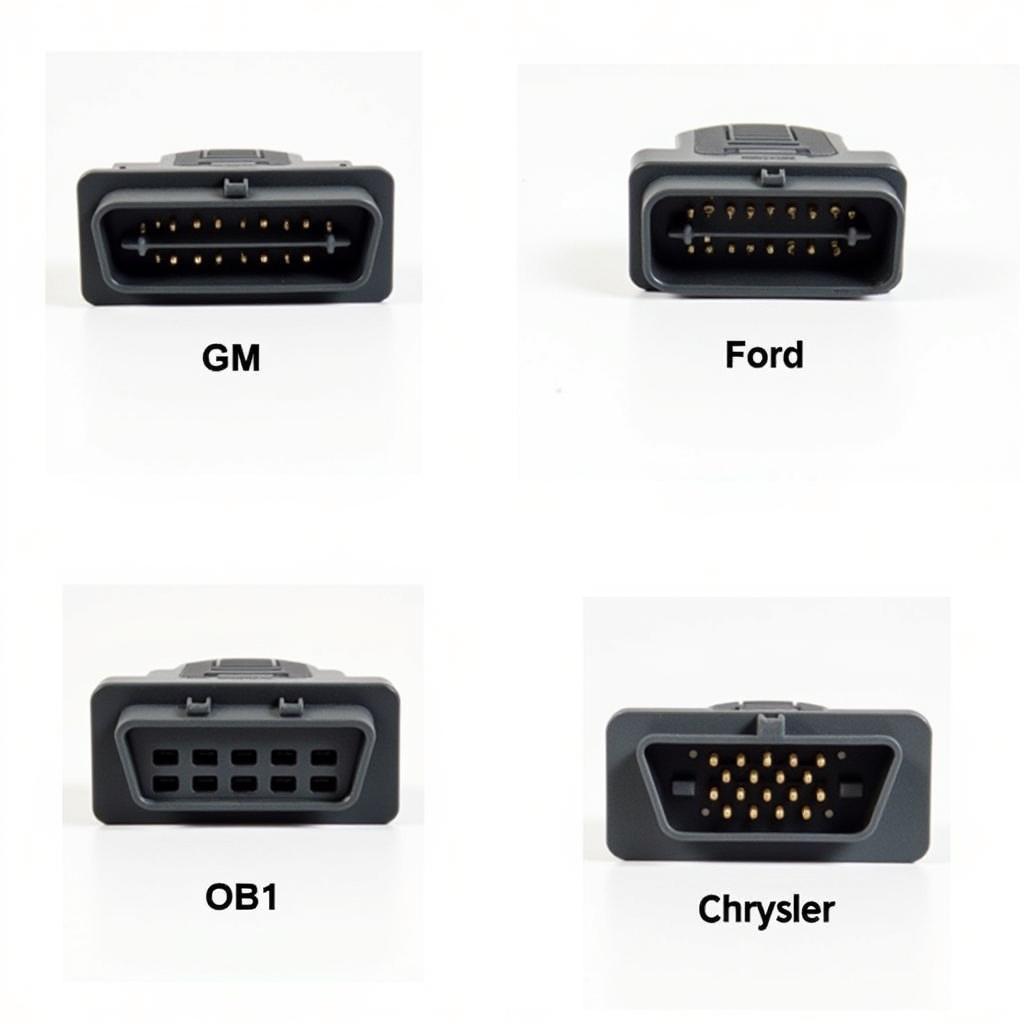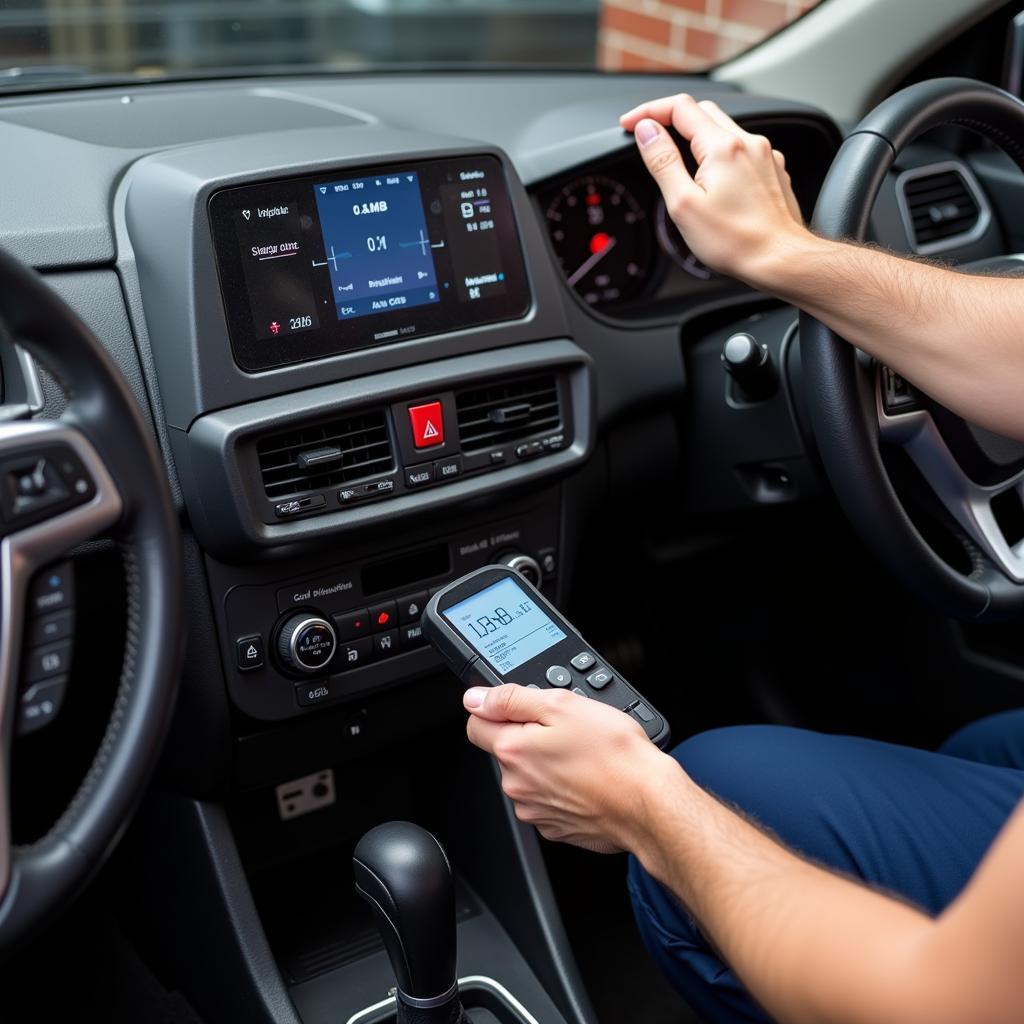Finding a Good Scanner For Cars can be overwhelming with so many options available. Whether you’re a seasoned mechanic or a car enthusiast looking to diagnose your vehicle, choosing the right scan tool can make all the difference. This comprehensive guide will navigate you through the essential factors to consider when selecting a good scanner for cars, helping you make an informed decision.
What to Consider When Choosing a Good Scanner for Cars
Before diving into the specifics of different car scanners, it’s crucial to understand what features are essential for your needs.
1. Compatibility
First and foremost, ensure the scanner you choose is compatible with your vehicle’s make, model, and year. Not all scanners are universally compatible, and some may only work with specific vehicle brands or systems.
Expert Insight: “Always double-check compatibility before purchasing a scan tool. Incompatibility issues can be a major headache,” says John Smith, a certified automotive technician with over 20 years of experience.
2. OBD-II Compliance
Most modern vehicles are equipped with an OBD-II (On-Board Diagnostics) port. A good scanner for cars should be OBD-II compliant to access the vehicle’s diagnostic trouble codes (DTCs). What is a good obd scan tool will be able to read both generic and manufacturer-specific codes, giving you a comprehensive understanding of your car’s health.
[image-1|obd2-compliance|OBD-II Compliance|A close-up image of a mechanic’s hand connecting an OBD-II scanner to a car’s diagnostic port. The image should clearly show the OBD-II connector and port. The mechanic’s hand is wearing a work glove, and the car’s dashboard is slightly visible in the background.]
3. Functionality and Features
Car scanners vary significantly in their functionality. Some basic models only read and clear DTCs, while more advanced options offer a wide range of features such as:
- Live Data Streaming: View real-time sensor data, such as engine RPM, coolant temperature, and oxygen sensor readings.
- Bi-Directional Controls: Perform tests and actuate components like solenoids and actuators.
- ECU Coding and Programming: Access and modify your car’s Engine Control Unit (ECU) for advanced diagnostics and customization.
- Special Functions: Some scanners offer specialized functions, such as ABS bleeding, airbag system resets, and transmission adaptation.
4. User Interface and Ease of Use
A good scanner for cars should have an intuitive user interface that is easy to navigate. Look for scanners with a clear display, logical menus, and easy-to-understand instructions.
[image-2|user-interface|User-Friendly Interface|A close-up image of a car diagnostic scanner’s screen displaying live data from a vehicle’s engine. The screen should show various parameters like RPM, coolant temperature, and fuel pressure in a clear and organized manner. The scanner itself can be partially visible, showcasing its design and button layout.]
5. Durability and Build Quality
Automotive environments can be harsh, so it’s important to choose a scanner that is built to last. Look for scanners with rugged construction, protective cases, and quality components.
Types of Car Scanners
There are various types of car scanners available, each catering to different needs and budgets.
1. Code Readers
Car engine scanner code reader are the most basic type of scanner. They can read and clear DTCs but typically don’t offer advanced features. Code readers are affordable and suitable for basic diagnostics.
2. OBD-II Scanners
OBD-II scanners offer more functionality than basic code readers. They can access live data streams, perform some bi-directional controls, and provide more detailed diagnostic information.
3. Professional-Grade Scanners
Professional-grade scanners, often used by mechanics and automotive technicians, offer the most comprehensive functionality. They typically include a wide range of features, including advanced diagnostics, ECU coding, and special functions.
Good Brand Scan Tool
Selecting a scanner from a reputable brand can ensure quality, reliability, and access to technical support. Some popular brands known for their car scanners include:
- Autel
- Launch
- Innotek
- Foxwell
- BlueDriver
[image-3|professional-scanner|Professional-Grade Scanner|A mechanic is shown using a professional-grade diagnostic scanner on a car. The scanner is connected to the car’s OBD-II port, and the mechanic is reviewing diagnostic information on its screen. The image should highlight the scanner’s professional design, large screen, and rugged build.]
Where to Buy a Car Diagnostic Scanner
Car diagnostic scanners can be purchased from various retailers, including:
- Online retailers such as Amazon and eBay
- Auto parts stores such as AutoZone and Advance Auto Parts
- Specialty automotive tool suppliers
How to Use Scan Tool for Cars
Once you have chosen a good scanner for cars, it’s essential to understand how to use it effectively.
- Locate the OBD-II Port: The OBD-II port is typically located under the dashboard on the driver’s side.
- Connect the Scanner: Plug the scanner into the OBD-II port.
- Turn on the Ignition: Turn the ignition to the “on” position without starting the engine.
- Follow the Scanner’s Instructions: Each scanner has its own set of instructions.
- Read and Interpret Codes: The scanner will display any stored DTCs. Consult a repair manual or online database to understand the meaning of the codes.
Conclusion
Choosing a good scanner for cars is essential for anyone looking to diagnose and repair their vehicles. Consider your needs, budget, and the level of functionality required when selecting a scanner. With the right scanner, you can take control of your car’s maintenance and troubleshoot issues effectively.
For expert advice and assistance on selecting the right automotive tools, contact ScanToolUS at +1 (641) 206-8880 or visit our office located at 1615 S Laramie Ave, Cicero, IL 60804, USA.




Pingback: Unlocking the Secrets of Your Car: A Comprehensive Guide to Scanner Cars - Car Scan Tool